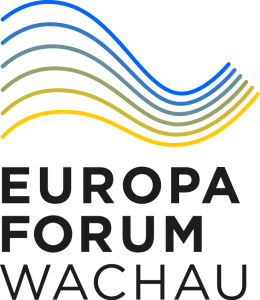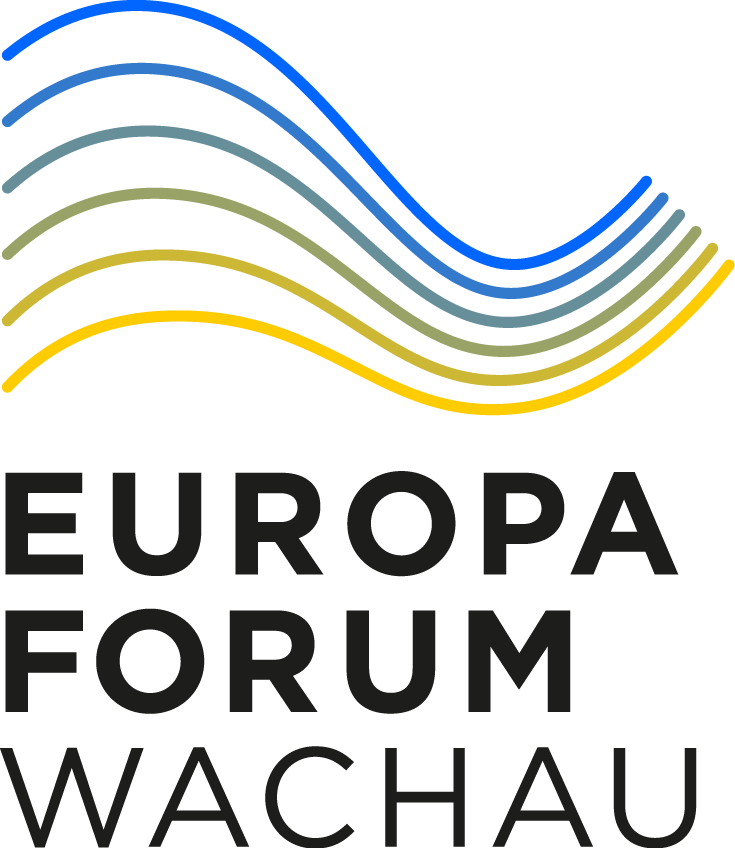Europe Day at the House of Digitalisation in Tulln under the banner of artificial intelligence
LH Mikl-Leitner: "Digitalisation has arrived in all areas of life"
Europe Day was celebrated today, Monday, at the House of Digitalisation in Tulln under the motto "Man and Machine - What skills do we need". Governor Johanna Mikl-Leitner, Chamber of Commerce President Wolfgang Ecker, Tulln Mayor Peter Eisenschenk and "Haus der Digitalisierung" Managing Director Claus Zeppelzauer spoke to around 200 pupils about digitalisation and artificial intelligence. They also honoured the winners of the "Working World of the Future" school competition. The day was organised by Europa-Forum Wachau and Europe Direkt Niederösterreich.
Europe Day is a very important day on which people should realise what Europe means and what the European Union brings, emphasised the Governor, saying that she had "witnessed several steps of the European Union. From the fall of the Iron Curtain in 1989, Austria's accession to the European Union in 1995 and then the enlargement in our neighbouring countries." She had already experienced what it was like to live on the Iron Curtain during her school days in Laa/Thaya. Back then, there were no universities or universities of applied sciences in Lower Austria and her home region was a commuter region. "The EU has brought us a lot of good things in Lower Austria. Today we have a landscape of universities of applied sciences and universities, a science axis, we have border regions that have blossomed," continued the Governor, who emphasised the need to work together on the European Union: "Because the future can only work if we hold on to the EU and generate added value from it. Europe is our future."
With regard to the areas of digitalisation and artificial intelligence, the Governor noted that they "have arrived in all areas of our lives. Our lives would be unimaginable without digitalisation and AI." Artificial intelligence is of enormous importance, especially with regard to the world of work. "The business world must adapt to this. Yes, many professions will no longer exist, but many new professions will emerge." In this respect, the House of Digitalisation is the platform between science, research, entrepreneurship and education. According to the Governor, this year's "European Year of Skills" is "the right motto and important for the future. Skills are the key to success and failure. Lifelong learning accompanies us all." Digital skills are important and necessary in order to be competitive.
Wolfgang Ecker, President of the Lower Austrian Chamber of Commerce, is convinced that artificial intelligence is unstoppable. He recognises a "huge push in this direction in the economy - from simple assistance services to highly complex tasks." Nevertheless, no one needs to be afraid that they will be left behind: "The shortage of skilled workers alone means that digitalisation must become even more prevalent," says Ecker, who is convinced that "we still have a lot of room for improvement in all areas. It won't be enough just to have a laptop; we will have to continue working intensively to develop skills. It won't work without knowledge and understanding."
Tulln's mayor Peter Eisenschenk saw a "special mission" that his city had as the home of the House of Digitalisation. "Tulln is Austria's garden city, we are trying to intervene in our green space management through digitalisation, among other things, but the files in the registry office have also been digitalised. There are a variety of activities that are being implemented for the benefit of the people." For him, it is also important to involve, inform and train citizens in the best possible way.
The House of Digitalisation has been open to the public since 16 January this year, as Managing Director Claus Zeppelzauer said: "Our mission is to educate." This is achieved on the one hand through the virtual platform and on the other through the House of Digitalisation as the "heart of all digitalisation activities." The house is "not a museum, but an interactive experience of the development of man and machine at six stations."
In the run-up to the event, a competition was launched at schools with the aim of drawing inspiration from young people's ideas on the topic of "man and machine". In numerous entries, young people explained how they envisage the digital transformation and the working world of tomorrow. The first three places were each awarded 200 euros in regional shopping vouchers. The winner was the "Interview with Dr Zweistein" by pupils from BG Neunkirchen, followed by the "HAKATAR" project by pupils from HAK Amstetten and the "School in 2050" by pupils from SZ Gmünd. All contributions can be found at: https://www.europaforum.at/veranstaltungen/europatag-2023-mensch-und-maschine/
The pupils were then networked with representatives from the worlds of business and higher education as part of a subsequent programme of stations. BOKU Tulln, St. Pölten University of Applied Sciences, Karl Landsteiner University, the University for Continuing Education in Krems, the Lower Austrian Chamber of Commerce and Jugendinfo Niederösterreich were all represented.

